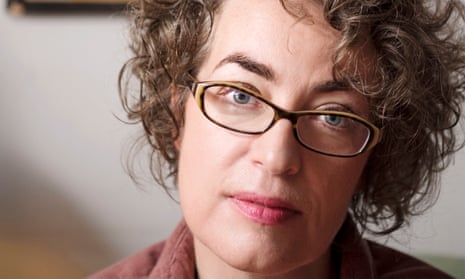Kate Clanchy is rewriting her critically acclaimed memoir after widespread criticism of her portrayal of her pupils, particularly children of colour and autistic children.
It follows reports that the publisher, Picador, had been in discussions to update future editions of the Orwell prize-winning book Some Kids I Taught and What They Taught Me, after days of online scrutiny over offensive passages, and was criticised for not going far enough in its initial statement.
Readers and fellow authors had been critical on Goodreads and Twitter of descriptions in the memoir, including the use of racial tropes such as “chocolate-coloured skin” and “almond-shaped eyes”, and references to one student as “African Jonathon” and another being “so small and square and Afghan with his big nose and premature moustache”.
Another passage was highlighted for the inclusion of ableist descriptions, in which Clanchy, a poet and teacher, refers to two autistic children as “unselfconsciously odd” and “jarring company”, and writes “probably, more than an hour a week” in their company “would irritate me, too, but for that hour I like them very much”.
The award-winning teenage author Dara McAnulty, who is autistic, shared the passages and tweeted: “Some people didn’t believe me when I shared some of my education experiences and how teachers felt about me … We can understand how you really feel about us.”
Initially, in a since-deleted tweet, Clanchy, 55, who is originally from Scotland, said she had been wrongfully accused of racism by reviewers on Goodreads. She later falsely claimed the quotes were “all made up”, then that the descriptions had been taken out of context.
Writers such as Philip Pullman and Amanda Craig came to Clanchy’s defence, while authors of colour, including Chimene Suleyman, Monisha Rajesh and Sunny Singh, criticised her response and the award-winning merit of the book, and went on to receive racist abuse from social media users.
Suleyman, a co-author of The Good Immigrant USA anthology, tweeted that she was particularly concerned by “the publishing team that didn’t spot it, the awards that celebrated it, and the white authors defending it and invalidating people of colour who are upset by it”.
Clanchy later apologised for “overreacting” to critical reader reviews and pledged to rewrite the book, calling the whole experience “humbling”. She wrote on Twitter: “I know I got many things wrong, and welcome the chance to write better, more lovingly.”
In a second statement addressing public anger at its initial lack of response and apology, Picador said: “We realise our response was too slow. We vigorously condemn the despicable online bullying of many of those who have spoken out. This has no place in our community.”
The publisher added that it apologised “profoundly for the hurt we have caused”.
Clanchy has taught in state schools for more than 30 years. In 2018, she published an anthology of pupils’ poetry and was awarded an MBE for services to literature. In 2020, a panel of independent Orwell prize judges described her memoir as “moving, funny and full of life”, offering “sparkling insights into modern British society”, and awarded the book the prize for political writing.
On Tuesday, the Orwell Foundation said that while it does not comment on the individual judging decisions of its jury, it acknowledged the “concerns and hurt” expressed about the work.
“The foundation understands the importance of language and encourages open and careful debate about all the work which comes through our prizes,” it said. “Everyone should be able to engage in these discussions, on any platform, without fear of abuse.”
Speaking to the BBC, Suleyman said “bridges have been broken in the publishing world” over the incident, adding there will be “some way to go to rebuild this trust with their writers and readers of colour”.
“Despite being accomplished writers and teachers on structural racism and colonialism,” she said, “Professor Sunny Singh, author Monisha Rajesh, and myself became invisible to authors who endorsed this book, speaking only with white authors, whilst simultaneously expressing denigrating racially charged views of us.”
Rajesh told the BBC she was unsure how the book could be updated given it was “riddled with racist and ableist tropes throughout”, including several phrases she said remained “rooted in eugenics and phrenology”.
